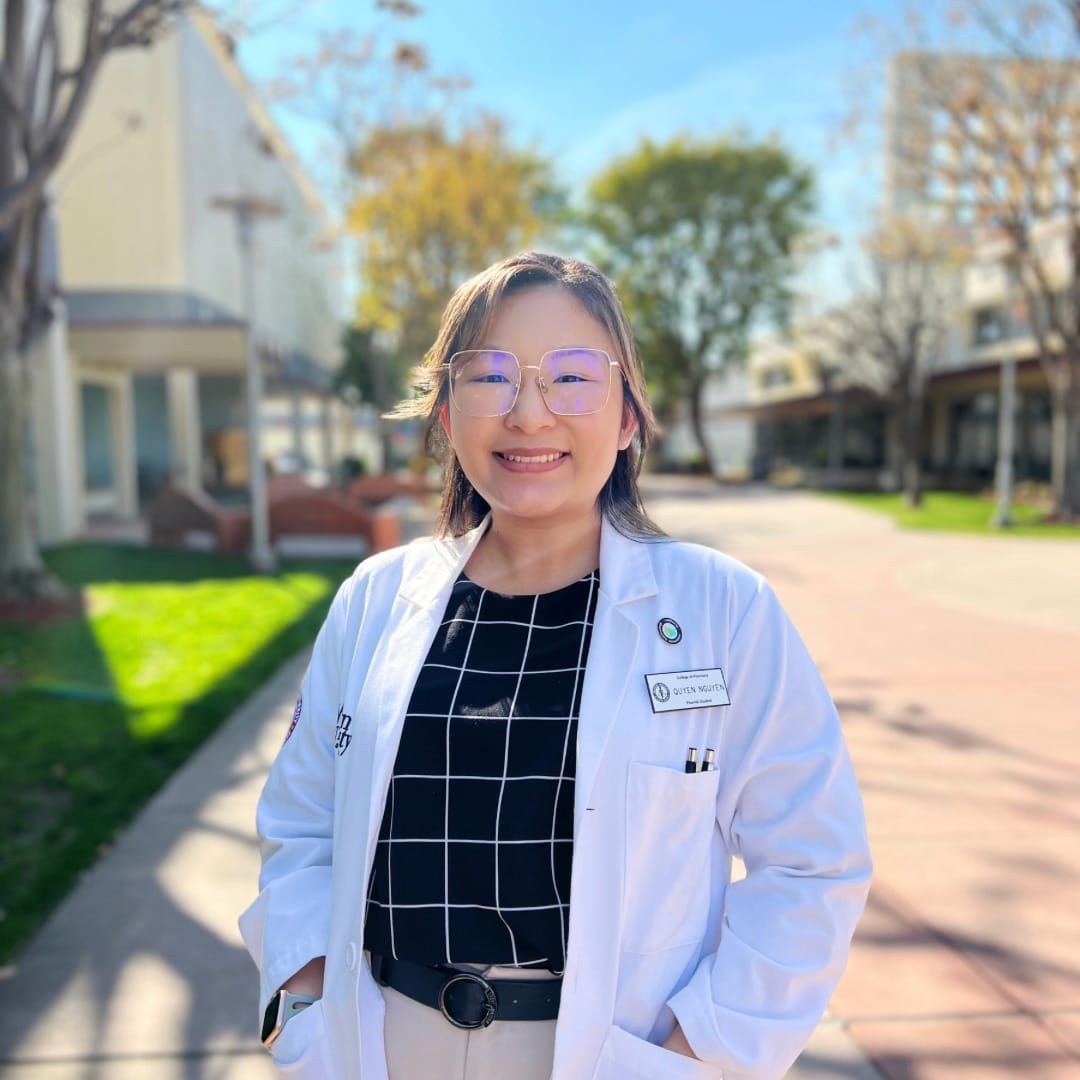WesternU College of Pharmacy’s Fellowship in Health Outcomes recertified for five years

Only nine fellowship programs in the U.S. meet the American College of Clinical Pharmacy’s (ACCP) rigorous standards and guidelines for certification. Western University of Health Sciences’ College of Pharmacy has two of them.
The ACCP Board of Regents and the ACCP Research Fellowship Program Peer Review Committee re-certified COP Department of Pharmacy Practice and Administration Chair and Professor Anandi Law’s Fellowship in Health Outcomes for a full five years. This certification recognizes that her program meets ACCP Fellowship Guidelines. A full review is conducted on established fellowship programs and preceptors who have graduated two or more fellows.
Law, BPharm, PhD, has graduated five Health Outcomes Fellows since 2003 and is well known throughout the social and administrative sciences for her research and numerous accomplishments. Dr. Law’s fellows have published 18 journal articles, 29 posters/abstracts, and two book chapters.
Dr. David Min directs COP’s Fellowship in Transplantation Translational Research, which is also certified by ACCP.
Peer review is not required, but Law said she participates in it because it serves as a personal sense of accomplishment, and validates not only the quality of the program, but also that creating the fellowship was the right decision. It also helps with the recruitment process.
“Peer review is an indication that I could meet a standard on a national level for scholarship and fellowship,” Law said. “It’s a way of showing how good the program is.”
Health outcomes look at the tripartite of clinical outcomes of treatment (lab values, how a patient changes clinically based on treatment), how health outcomes impact cost to the system, and patient-reported outcomes. The two-year program provides fellows with many research opportunities.
“I’ve tried to work with my fellows in their areas of interest,” Law said. “The first year they usually work on some of my ongoing projects. Six to eight months into the fellowship they pick their own project. They need to take an idea, conceptualize it, and operationalize it so they take more of a lead. By the time they leave, I want to be sure they’re an independent researcher.”
Law’s sixth fellow, Yuna Bae, PharmD, will complete her fellowship June 30, 2016. She said the fellowship attracted her because it is in an academic setting rather than an industry setting, with opportunities to participate in research and teaching.
“I wanted to be on the front line of evidence-based medicine, especially with all the health care reform going on,” Bae said. “Outcomes research has a lot of potential. It is an expanding field.”
Bae is conducting research into medication adherence.
“We developed a tool to help identify barriers to medication adherence in patients taking medication for chronic illnesses such as diabetes, hypertension and cholesterol problems,” she said.
Law has provided much more than just guidance in how to conduct research. She has also mentored Bae in time management and career advancement. She covered the cost for Bae to attend conferences including the 3rd USC National Conference on Optimizing Medication Safety & Healthcare Quality Feb. 11-12. Bae is looking for a faculty position, or might continue her education in grad school.
“If I didn’t have this fellowship experience, I don’t think I would have been qualified for a lot of positions I applied for,” Bae said. “It opened up a lot of doors for me.”
Most of her fellows continue to work with her after their fellowship is completed, Law said. Four of her five fellows entered or returned to academia.
“For me a fellowship, or any postdoc program, is not only about developing their technical skills in a lab setting, but developing them as an independent researcher in their entirety,” Law said. “To me, that includes understanding that entire world – networking, mentoring, being mentored, developing oral and written communication skills and life lessons.”
Click here to learn more about WesternU’s Health Outcomes Fellowship: http://www.westernu.edu/pharmacy/pharmacy-academics/pharmacy-dpp-postdoctoral-training/



